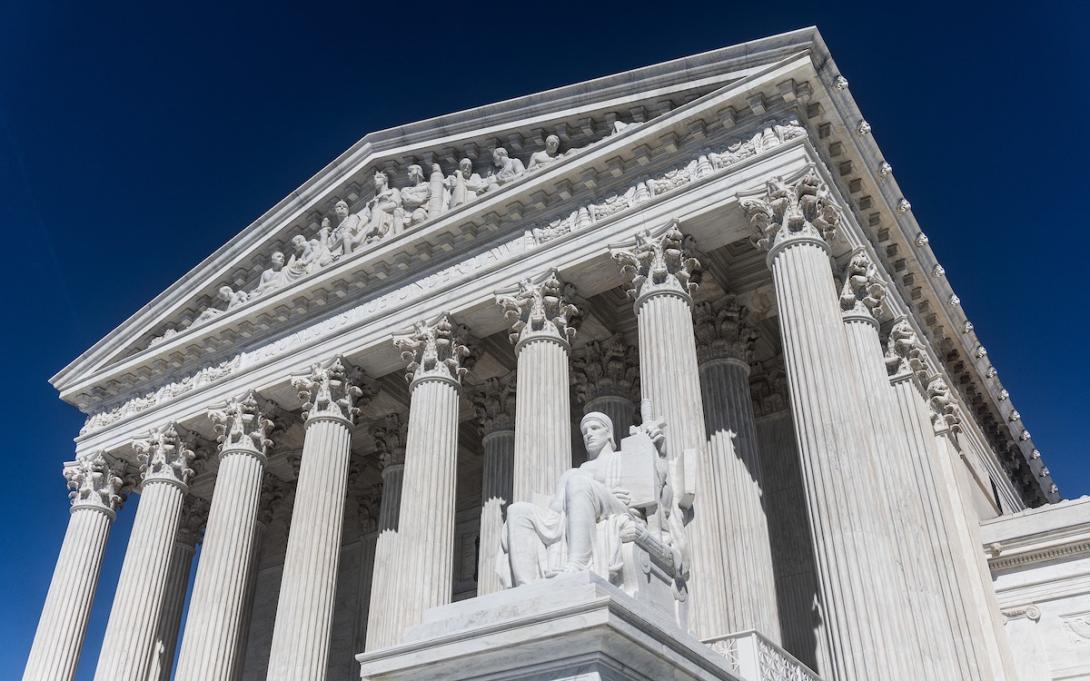
The U.S. Supreme Court upheld Tennessee’s law prohibiting gender affirming care for minors, saying children who seek the treatment don’t qualify as a protected class.
In United States v. Skrmetti, the high court issued a 6-3 ruling Wednesday overturning a lower court’s finding that the restrictions violate the constitutional rights of children seeking puberty blockers and hormones to treat gender dysphoria. The U.S. Court of Appeals overturned the district court’s decision and sent it to the high court.
The court’s three liberal justices dissented, writing that the court had abandoned transgender children and their families to “political whims.”
Tennessee lawmakers passed the legislation in 2023, leading to a lawsuit argued before the Supreme Court last December. The federal government, under the Biden administration, took up the case for the American Civil Liberties Union, Lambda Legal and three transgender teens, their families and a Memphis doctor who challenged the law, but the U.S. Department of Justice under President Donald Trump dropped its opposition.
In its ruling, the court said that the plaintiffs argued that Senate Bill 1 “warrants heightened scrutiny because it relies on sex-based classifications.” But the court found that neither of the classifications considered, those based on age and medical use, are determined on sex.
“Rather, SB1 prohibits healthcare providers from administering puberty blockers or hormones to minors for certain medical uses, regardless of a minor’s sex,” the ruling states.
The ruling says the application of the law “does not turn on sex,” either, because it doesn’t prohibit certain medical treatments for minors of one sex while allowing it for minors of the opposite sex.
The House Republican Caucus issued a statement saying, “This is a proud day for the Volunteer State and for all who believe in protecting the innocence and well-being of America’s children.”
Senate Majority Leader Jack Johnson, who sponsored the bill, said he is grateful the court ruled that states hold the authority to protect children from “irreversible medical procedures.”
“The simple message the Supreme Court has sent the world is ‘enough is enough,'” Johnson said in a statement.
The Tennessee Equality Project, an LGBTQ advocacy group, expressed dismay at the decision: “We are profoundly disappointed by the U.S. Supreme Court’s decision to side with the Tennessee legislature’s anti-transgender ideology and further erode the rights of transgender children and their families and doctors. We are grateful to the plaintiffs, families, and the ACLU for fighting on behalf of more than 1.3 million transgender adults and 300,000 youth across the nation.”
The group said gender-affirming care saves lives and is supported by medical groups such as the American Academy of Pediatrics and the American Medical Association.
The court also rejected plaintiffs’ argument that the law enforces “a government preference that people conform to expectations about their sex.”
The court found that laws that classify people on the basis of sex require closer scrutiny if they involve “impermissible stereotypes.” But if the law’s classifications aren’t covertly or overtly based on sex, heightened review by the court isn’t required unless the law is motivated by “invidious discriminatory purpose.”
“And regardless, the statutory findings on which SB1 is premised do not themselves evince sex-based stereotyping,” the ruling says.
In response to the outcome, Tennessee Attorney General Jonathan Skrmetti said Tennessee voters’ common sense won over “judicial activism” on a law spurred by an increase in treatment for transgender children.
“I commend the Tennessee legislature and Governor Lee for their courage in passing this legislation and supporting our litigation despite withering opposition from the Biden administration, LGBT special interest groups, social justice activists, the American Medical Association, the American Bar Association, and even Hollywood,” Skrmetti said.
U.S. Senate Minority Leader Chuck Schumer, D-N.Y., criticized the ruling just moments after it came out after being asked about it during a press conference.
“This Supreme Court seems to have forgotten that one of their jobs is to protect individual rights and protect individuals from being discriminated against,” Schumer said. “It’s an awful decision.”
Democrats, he said, are “going to explore every solution,” though he didn’t elaborate.
Chief Justice John Roberts wrote in the opinion: “This case carries with it the weight of fierce scientific and policy debates about the safety, efficacy, and propriety of medical treatments in an evolving field. The voices in these debates raise sincere concerns; the implications for all are profound. The Equal Protection Clause does not resolve these disagreements. Nor does it afford us license to decide them as we see best. Our role is not ‘to judge the wisdom, fairness, or logic’ of the law before us, but only to ensure that it does not violate the equal protection guarantee of the Fourteenth Amendment. Having concluded it does not, we leave questions regarding its policy to the people, their elected representatives, and the democratic process.”
The ACLU said in a statement the decision is based on the record and context of the Tennessee case and doesn’t extend to other cases involving transgender status and discrimination.
Chase Strangio, co-director of the ACLU’s LGBTQ & HIV Project, called the ruling “devastating,” but despite the setback said transgender people still have healthcare options.
“The court left undisturbed Supreme Court and lower court precedent that other examples of discrimination against transgender people are unlawful,” Strangio said in a statement.